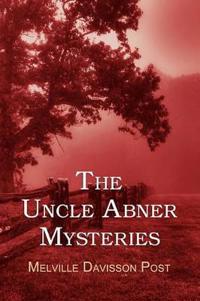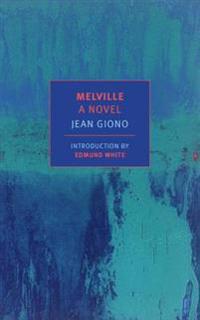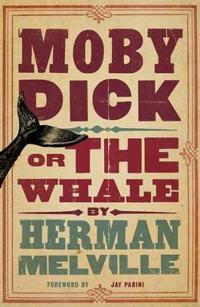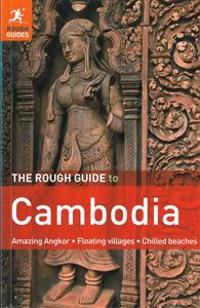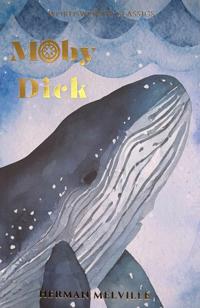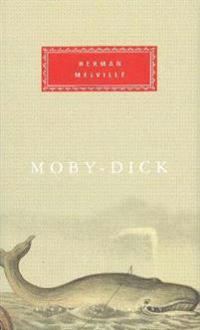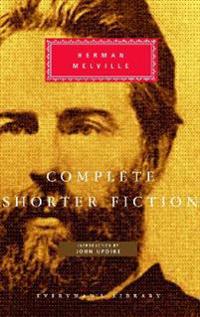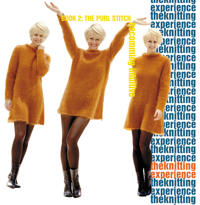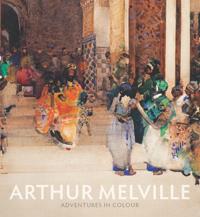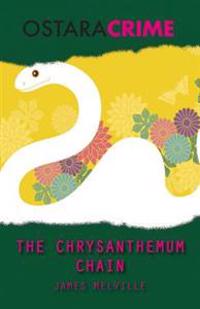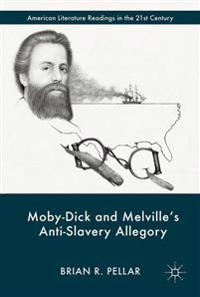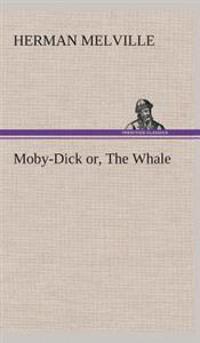Moby Dick Audiobook (Timeless Classics) (CD-bok)
avHerman Melville
ISBN: 9781622501243 - UTGIVEN: 2013-01Timeless Classics--designed for the struggling reader and adapted to retain the integrity of the original classic. These classic novels will grab a student's attention from the first page. Audiobook for each title is paced for students to follow the text word-for-word and include two audio CDs--more[...]
Moby-Dick (Häftad)
avHerman Melville
ISBN: 9781626860575 - UTGIVEN: 2014-05Call me Ishmael is the iconic opening line of Herman Melville's classic American novel, Moby-Dick. Ishmael is a seaman aboard the whaling vessel, Pequod, under the vengeful captain, Ahab. Maniacally seeking retribution from the great white sperm whale called Moby-Dick -- the whale responsible for th[...]
Herman Melville
ISBN: 9781780238074 - UTGIVEN: 2017-10American novelist and poet Herman Melville is considered by many to be the finest author his nation has produced. Born in New York in 1819, he achieved recognition as a leader of world literature with his daring stylistic innovations, and his masterpiece Moby-Dick continues to capture the attention [...]
Moby Dick (Häftad)
avHerman Melville
ISBN: 9781847492746 - UTGIVEN: 201305When the young Ishmael gets on board Captain Ahab's whaling ship, little does he suspect that the mission on which he is about to embark is the fulfilment of his master's obsessive desire for revenge on Moby Dick, a white whale who has already claimed countless human victims and destroyed many fleet[...]
The Rough Guide to Cambodia (Häftad)
avBeverley Palmer, Charlotte Melville
ISBN: 9781848368897 - UTGIVEN: 201108"The Rough Guide to Cambodia" is the ultimate travel guide to this fascinating country with clear maps and detailed, informed coverage on the country's foremost tourist draw, the stunning temples of Angkor. As well as up-to-date, practical advice on where to stay and eat for all budgets, there's a c[...]
Moby Dick (Storpocket)
avHerman Melville
ISBN: 9781853260087 - UTGIVEN: 199205Moby Dick is the story of Captain Ahab's quest to avenge the whale that 'reaped' his leg. The quest is an obsession and the novel is a diabolical study of how a man becomes a fanatic. But it is also a hymn to democracy. Bent as the crew is on Ahab's appalling crusade, it is equally the image of a co[...]
Billy Budd and Other Stories (Storpocket)
avHerman Melville
ISBN: 9781853267499 - UTGIVEN: 199803Melville's short stories are masterpieces. The best are to be appreciated on more than one level and those presented here are rich with symbolism and spiritual depth. Set in 1797, Billy Budd, Foretopman exploits the tension of this period during the war between England and France to create a tale of[...]
Moby Dick (Inbunden)
avHerman Melville
ISBN: 9781857150407 - UTGIVEN: 199109A story of the war between man and mammal, in which the author explores his obsessions with good and evil, love and solitude, speech and silence, using his technical knowledge of sailing and the sea to tell a story which is at once minutely realistic and powerfully symbolic.[...]
Complete Shorter Fiction (Inbunden)
avHerman Melville
ISBN: 9781857152326 - UTGIVEN: 1997-05This title is published to coincide with the becentenary of Horace Walpole's death. Horace Walpole was letter writer so energetic and fertile that his collected correspondence occupies forty volumes. Yet his energy and fertility were matched by such perceptiveness and wit, and his thoughts are expre[...]
Sally Melville Styles
ISBN: 9781893762107 - UTGIVEN: 2002-12These simple techniques and sensational garments provide techniques to help knitters make the most of their yarn collections.[...]
The Knitting Experience (Pocket)
avSally Melville
ISBN: 9781893762145 - UTGIVEN: 200310Picking up where "The Knitting Experience: Book 1: The Knit Stitch" left off, this primer on the purl stitch uses clear, step-by-step photographs to guide beginner knitters through unique knitting projects. A natural progression of skills is taught, and each skill is punctuated by a knitting project[...]
Moby Dick (Inbunden)
avHerman Melville
ISBN: 9781904633778 - UTGIVEN: 200408Join Captain Ahab, an eerily compelling madman, as he pursues an unholy war against a creation as vast, dangerous and unknowable as the sea itself. In his monumanical quest, Ahab focuses his distilled hatred and suffering - and that of generations before him - against one single creation, and pursue[...]
Moby Dick (Häftad)
avHerman Melville
ISBN: 9781906230722 - UTGIVEN: 2013-07Among the crew is Ishmael, the novel's narrator, ordinary sailor, and extraordinary reader. Digressive, allusive, vulgar, transcendent, the story Ishmael tells is above all an education: in the practice of whaling, in the art of writing. Expanding to equal his 'mighty theme' - not only the whale but[...]
Arthur Melville: Adventures in Colour (häftad)
ISBN: 9781906270872 - UTGIVEN: 2015-12Arthur Melville was arguably the most innovative and modernist Scottish artist of his generation and one of the finest British watercolourists of the nineteenth century, yet he avoided categorization. In 1943 the Scottish Colourist John Duncan Fergusson confessed that although they never met, "his w[...]
Introducing Second Language Acquisition Second edition (Häftad)
avHerman Melville
ISBN: 9783125398597 - UTGIVEN: 2013-09Moby-Dick and Melville's Anti-Slavery Allegory
ISBN: 9783319522661 - UTGIVEN: 2017-06This book unfurls and examines the anti-slavery allegory at the subtextual core of Herman Melville's famed novel, Moby-Dick. Brian Pellar points to symbols and allusions in the novel such as the albinism of the famed whale, the "Ship of State" motif, Calhoun's "cords," the equator, Jonah, Narcissus,[...]
Moby-Dick (Pocket)
avHerman Melville
ISBN: 9783596901951 - UTGIVEN: 2009-07"Melvilles weltberühmter "Moby-Dick" ist ein Abenteuerroman im doppelten Wortsinn: Mit seiner Geschichte vom fanatischen Kapitän Ahab und seiner Jagd nach dem Weißen Wal erzählt der Roman eines der packendsten Seeabenteuer der Weltliteratur. Mit seinem enzyklopädischen Anspruch unternimmt der R[...]
But Truth Is Ever Incoherent: Dis/Continuity in Herman Melville's 'Moby-Dick' (Inbunden)
avAstrid Recker
ISBN: 9783825355180 - UTGIVEN: 2008-01Focusing on the critical notions of disunity and incoherence so frequently raised in discussions of 'Moby-Dick', the study argues that Melville's 1851 novel depicts two radically different realities governed by principles of continuity and discontinuity respectively, each of which is associated with[...]

